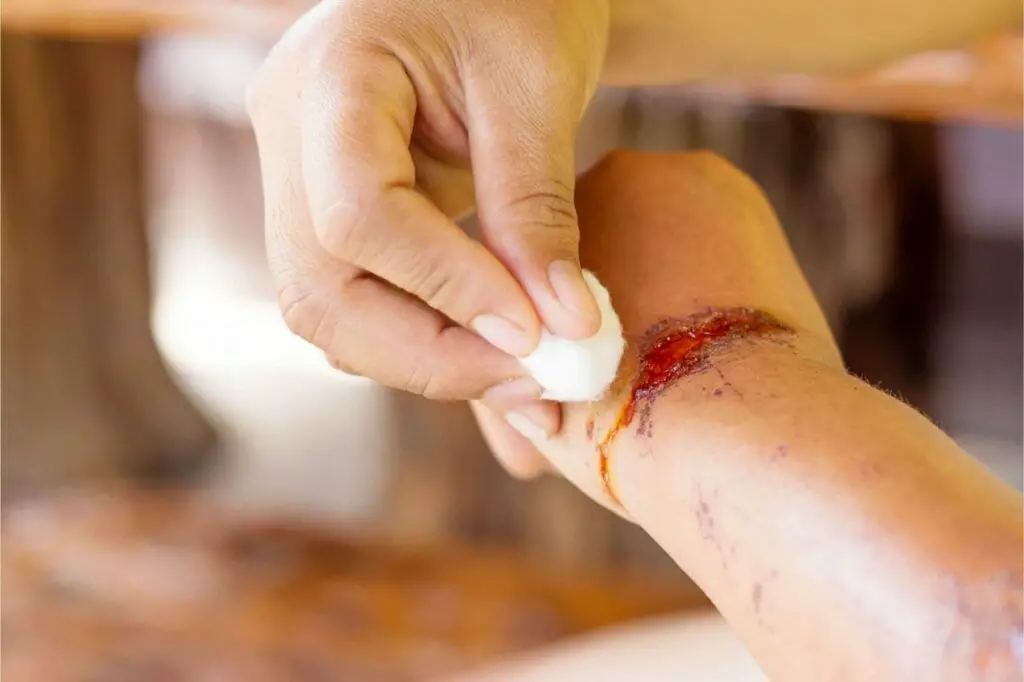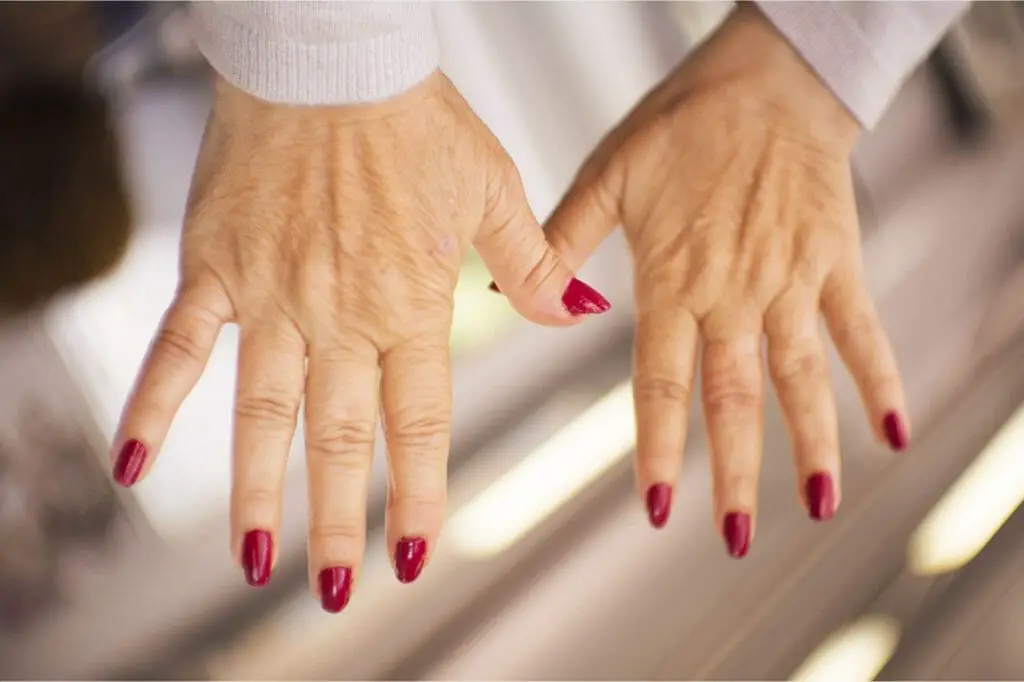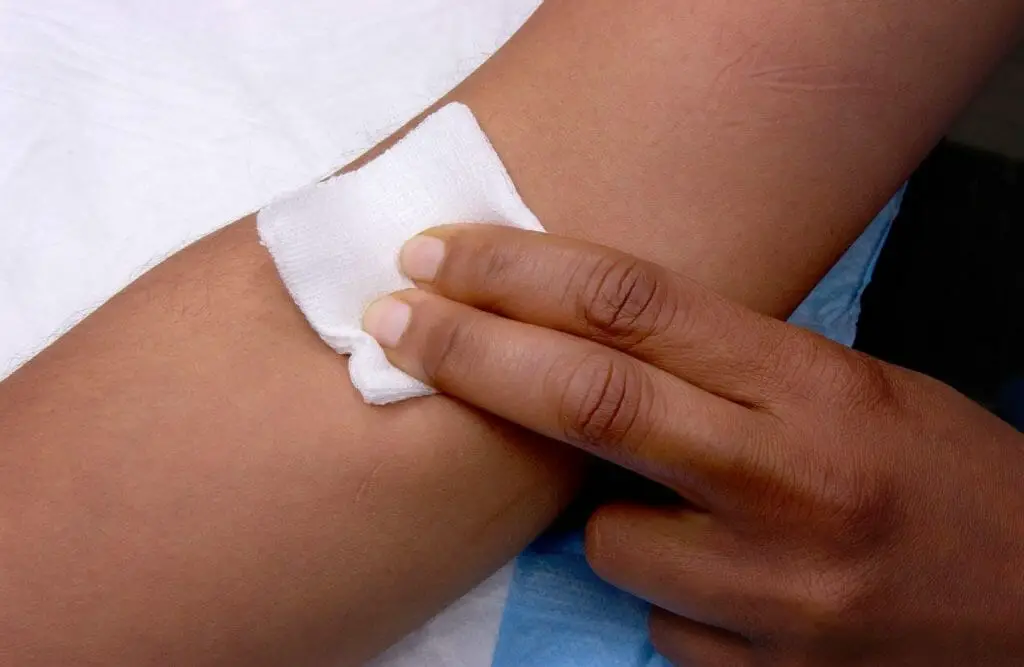As people age, we probably notice that their skin is much thinner and feels more frail than someone who is much younger.

This thin skin means that the elderly are much more susceptible to tearing, especially if they already have a wound that is taking a long time to heal.
Contents
How does wound care cause skin to tear?
If someone has an open wound, either from surgery or an accident, they will probably have bandages to keep the wound clean and help it heal.
Either daily or every other day the bandages will need to be changed and clean, but the adhesive used in wound care bandages can be harsh on the skin.
For the elderly, whose skin is already fragile, constant taping and removing of bandages can really wear down the skin and cause it to tear.
You might like to read: Cost Of Diabetes To Individual, Family, And Community
Why do elderly people have such fragile skin?
As we get older, our body’s production of collagen and elastin, which will show as wrinkles and sagging in our skin. Maybe you can use TENS Machine to your face and skin.
This, in turn, will make the skin less tolerable to the wear and tear that younger skin can withstand.
This means that a simple bump or scrape can cause a much more serious wound for someone who is elderly, and it will take that much longer to heal.
There are also several health factors and illnesses that can make healing just that much harder, and elderly people may have developed these conditions (like diabetes).

Why proper wound care is so important
As mentioned, our body’s ability to heal wounds will become much less efficient as we age. Proper wound care can be the difference between a wound that heals well and one that becomes infected.
Can the wounds be treated at home?
As much as we may want to, not all wounds can be treated properly at home. There may be some wounds that require professional treatment, at least in the beginning to make sure it’s going on the right path to healing.
There are different kinds of wounds: scrapes and cuts that usually heal in about 2 weeks on their own and reoccurring wounds that take much longer than 2 weeks to heal.
The elderly as especially susceptible to wounds like pressure ulcers, radiation sores and bed sore. This can come from various illnesses or immobility that usually comes with age.
Here are a few wound care tips to make sure you’re healing properly and that, even with thin skin, you’ll be able to change bandages and care for the wound.
You might like to read: 7 Kale Benefits For Skin
Assess the wound
For the most part, cuts or scrapes that are pretty superficial can be treated at home with a basic first aid kit and regular bandages.
However, if you have really thin skin or you have a medical condition that makes healing more difficult then even a small cut can be a bigger deal.
Additionally, if your skin is ripped wide open or you have a really deep cut then you may not want to try to care for the wound at home – or you may not have the right bandages to properly care for it.
If you see a medical professional soon after the wound occurs, and it’s properly assessed/treated then the wound will actually heal that much faster.
Trying to treat a wound at home that is too big, and then seeing a doctor after a while of trying, can prolong the healing time that much more.
Caring for a small wound at home
If the wound is small enough, and your skin is not torn, you can probably care for it at home with the bandages you already have.
Here are the steps needed to care for a small wound at home
- Apply pressure to the cut/wound to stop the bleeding. Make sure you are using a clean cloth to apply the pressure so you don’t get any bacteria into the cut.
- Once the bleeding has stopped, you will want to wash the cut with a mild anti-bacterial soap. You’ll want to clean the wound and the area around it, but make sure you dab and don’t pull at it so that you don’t tear the skin.
- Put antibiotic ointment on the wound to prevent any infection from forming.
- Put a sterile bandage over the wound, and make sure it’s big enough to cover the wound and a decent amount of skin so that the sticky part is not going to just tear at the edges of the cut.
- Repeat this process at least once daily until it’s healed.
The various stages of healing may cause the area around the wound to puff out a bit or become itchy. This is very normal and nothing to be concerned about.
These types of wounds will typically heal within a couple weeks. If it seems to be taking longer than this, or the wound just won’t close then you should definitely see a doctor.
There are some cases where an acute wound can turn into something much more serious, and it’s especially common in the elderly with thin skin.
So, what are the next steps when a wound does not heal within two weeks or your loved one has a lot of nonhealing wounds?

You might like to read: Tips For Preventive Care And Self Care For Seniors
See a doctor
If you’ve tried to care for a wound on your own but it’s just not healing, or it seems to be getting worse than you will need to get your loved one to a doctor.
The doctor may prescribe them or refer them to a wound care program after taking a look at your loved one’s wound.
What is wound care then?
Wound care will be a plan that is specifically designed for your loved one to make sure they heal from any wound they have that just won’t heal naturally.
There are wound care certified providers who have specialized training in the knowledge needed to get your loved on from wound to full recovery.
This kind of care will start at the initial dressing and move through bandage changes and cleaning, all the way through to physical therapy (if it’s needed for your loved one).
Why do seniors need a wound care team?
Seniors are at an increased risk for wounds that won’t heal because their skin is so frail and thin. They are also at a higher risk for suffering from conditions like diabetes, inactivity, poor circulation and even poor nutrition.
Having a wound treated quickly and properly can go a long way to making sure it heals the right way the first time, and that your loved one doesn’t experience any prolonged suffering.
Improper wound care can cause infections or even hospitalizations, so it’s really important to get the right care from medical professionals.
Seniors who have nonhealing wounds have shown great results and seeing their wounds heal once they start working with a wound care team.
What’s the difference in a care provider who is wound care certified?
There are many home care providers who can help with basic daily needs (like dressing, bathing and nutrition). However, if your loved one has specialized needs you may want to choose to work with a care provider who is certified in wound care.
When the care provider is certified, you know that your loved one is getting the best quality of care possible for what they need. This is the kind of care this care provider is experienced in, so they know what they are doing.
Using a wound care certified provider can help your loved one’s wound heal that much quicker and make it heal right the first time.
You might like to read: Best Sunscreen For Mature Skin
Since the wound will heal more effectively, it can actually lead to less health complications in the long run for your loved one. This can also mean more affordable health care or even lower health care bills because the wound will be healed sooner and properly.
In fact, it has been shown that a patient’s care costs will dramatically decrease when they use a certified wound care provider (as they need one) because their wounds heal faster and more effectively.
Outside of the cost savings part of it (although that is a big deal for those who are on a fixed income or may not have the extra funds to give because they’re retired), proper wound care is just important.
A certified wound care provider can save your loved one’s quality of life, and maybe if their life if it means a wound doesn’t get infected.
As much as you may want to help your loved one with their wound care, sometimes you will need to reach out for help and get the right team of medical professionals in,
When it comes to a small wound, you can care for it at home with regular bandages and antibiotic cream. Check on it daily and clean it out so that you can catch any infection early.
If you’re caring for a small wound at home, make sure you don’t change the bandage too often as the sticky part of the bandage can be harsh on the skin.
If the wound doesn’t start healing on its own (and isn’t healed in two weeks) then make sure you call a doctor and get your loved one to see them and get in touch with a wound care team.
